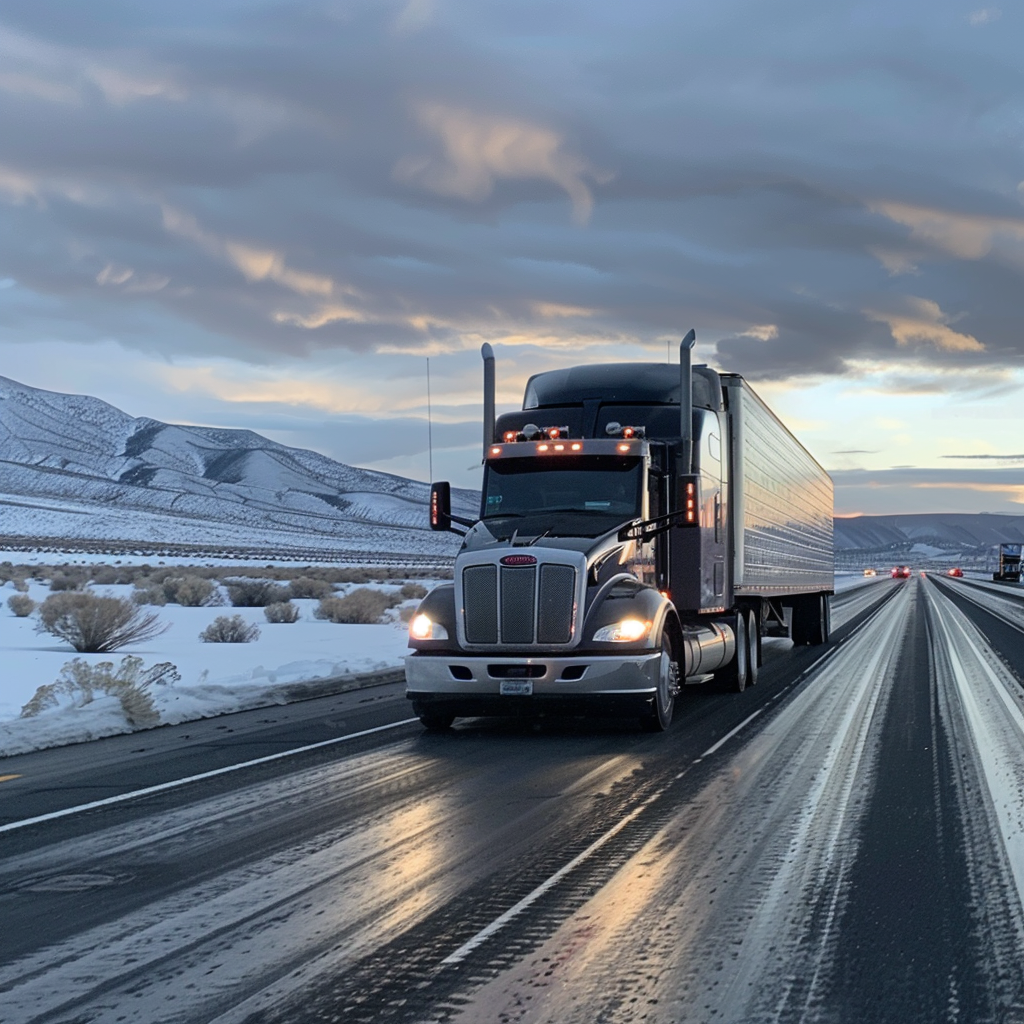New Mexico Oversize Permits
Freedom Heavy Haul can offer expedited Pickup and Delivery for any size shipment anywhere in the USA. Contact us today for No Hassle, No Pressure Pricing.
Oversize permits are crucial for vehicles that exceed standard size or weight limits on roadways. In New Mexico, the Department of Transportation (NMDOT) regulates these permits to facilitate the safe and efficient movement of oversized loads, ensuring they do not cause damage to road infrastructure or pose safety risks to the public. This section explores the foundational aspects of New Mexico Oversize Permits within the state, setting the stage for a deeper dive into specific requirements and procedures.
Overview of New Mexico Oversize Permits
In New Mexico, oversize permits are required for any vehicle or load that exceeds the state’s designated legal dimensions — typically, widths over 8’6″, heights over 14′, and weights exceeding 80,000 pounds. These permits help manage the transport of large items like construction machinery, pre-fabricated homes, or heavy equipment, which are integral to various industries including construction and manufacturing.
Regulatory Authority: New Mexico Department of Transportation (NMDOT)
The NMDOT is responsible for issuing oversize permits and setting the regulations that govern the transportation of oversized loads. They provide guidelines on travel times, escort requirements, and other safety measures. The NMDOT’s role is pivotal in balancing the operational needs of heavy haulers with public safety and infrastructure preservation.
Permit Application Process
Obtaining an oversize permit in New Mexico involves several steps, from determining if a permit is needed to submitting the necessary documentation. This process is designed to be straightforward but requires attention to detail to avoid delays.
Steps to Apply Online
Applicants can apply for permits through the NMDOT’s online portal, NM-OPS (New Mexico Operating Permit System), which streamlines the application process. After registering an account, users must fill out specific details about their load, proposed route, and travel dates, followed by submitting the application for review.
Documentation Requirements for Application
Required documentation typically includes vehicle registration, proof of insurance, and details about the load, including dimensions and weight. Additionally, if the route involves crossing bridges or using roads with weight restrictions, further documentation such as route surveys may be necessary.

Office Locations for In-Person Assistance
For those who prefer or require in-person assistance, NMDOT maintains several offices across the state. These locations offer support for permit applications, providing guidance on compliance with state regulations and helping to resolve any issues that may arise during the application process.
Types of Available Permits
New Mexico offers several types of oversize permits to accommodate the diverse needs of transporters, from single trips to more frequent needs.
Single Trip and Multiple Trip Permits
Single trip permits are ideal for one-time moves, while multiple trip permits can be more cost-effective for companies with frequent hauls. These permits differ primarily in duration and cost, with multiple trip permits offering extended validity for a higher fee.

Special Permits for Unique Loads
Certain loads that are unusually large or heavy may require special permits. These are assessed on a case-by-case basis and may involve additional stipulations, such as police escorts or travel during specific hours to minimize traffic disruption.
Permit Costs and Fees
The cost of oversize permits in New Mexico varies depending on the type of permit and the specifics of the load and route.
Structure of Fees for Various Permit Types
Fees for single trip permits start at $25, but can increase based on load characteristics and additional requirements like escorts. Multiple trip permits generally cost more but provide greater flexibility.
Additional Costs for Special Services and Escorts
For oversized loads that require escorts or special route surveys, additional fees will apply. These fees cover the costs of coordinating with local authorities and police for safe transport, particularly in densely populated or high-traffic areas.
Vehicle Requirements for Oversize Loads
Vehicles transporting oversized loads must comply with specific regulations regarding dimensions and weight, ensuring they are suitable for the highways they will use.
Legal Dimensions and Weight Limits
Legal limits are set to ensure that roads and bridges are not subjected to undue stress, which could lead to damage or increased maintenance costs. Vehicles exceeding these limits without a proper permit are subject to fines and penalties.

Permit Restrictions on Size and Weight
Permits outline specific restrictions based on the vehicle’s size and weight, which may affect the routes it can take. For example, certain roads may be off-limits to extremely heavy loads, and specific bridges might require weight distribution measures.
Safety Measures and Compliance
Safety is paramount when transporting oversized loads. Compliance with all permit requirements is essential to prevent accidents and road damage
Escort and Pilot Car Requirements
For exceptionally large or potentially hazardous loads, the use of escort vehicles or pilot cars is mandatory. These escorts help ensure that the oversized load moves safely through traffic and around obstacles, communicating with the driver of the heavy hauler and other road users to prevent accidents.
Signage, Flags, and Lighting Requirements
Vehicles transporting oversized loads must be equipped with specific signs, flags, and lighting to enhance visibility. These include “Oversize Load” banners, red or orange flags on the extremities of the load, and, if necessary, additional lighting for travel during dusk or dawn.
Operating Conditions and Restrictions
Operating conditions for oversized loads are closely regulated to minimize the impact on regular traffic and enhance safety.
Designated Travel Times and Restrictions
Oversized loads are generally allowed on the road half an hour before sunrise until half an hour after sunset. There are additional restrictions during peak traffic hours and in specific areas to prevent congestion and accidents.
Impact of Weather and Holidays on Operations
Adverse weather conditions or major public holidays may impose further restrictions on the movement of oversized loads. High winds, poor visibility, or major traffic expected during public holidays can lead to temporary bans or restrictions.
Geographic and Urban Area Restrictions
Certain urban areas or specific roads may have strict limitations on when and if oversized loads can pass through. These restrictions are often in place to ensure public safety and to facilitate smooth traffic flow in densely populated or high-traffic areas.
Enforcement and Penalties
Adherence to permit stipulations is enforced rigorously to prevent infrastructure damage and ensure public safety.
Overview of Fines for Violations
Violations of permit conditions, such as exceeding size or weight limits, or traveling during restricted hours, can result in substantial fines. These penalties are designed to deter non-compliance and cover potential damage to public roads.
Compliance Monitoring and Enforcement Practices
The NMDOT, along with local law enforcement, actively monitors compliance through checkpoints and random inspections. These efforts are crucial for maintaining the integrity of transportation infrastructure and ensuring that permit conditions are followed.
Additional Resources and Support
NMDOT provides various resources and support mechanisms to assist carriers in complying with oversize permit regulations.
Frequently Asked Questions (FAQs)
NMDOT’s website offers a comprehensive FAQ section that addresses common concerns and questions about oversize permits, providing clarity and support for transporters and companies.
Contact Information for NMDOT Permit Offices
For further assistance, the NMDOT has dedicated contact details for permit offices across the state, available for enquiries related to permits, routes, and compliance issues.
Latest Updates and Announcements
Staying informed about recent legislative changes or updates in permit regulations is crucial for companies involved in the transportation of oversized loads.
Recent Changes to Permit Regulations
Updates to regulations or permit requirements are periodically posted on the NMDOT website and distributed through industry newsletters to ensure that all stakeholders are aware of the latest operational guidelines.
Important Notices for Permit Holders
Important notices regarding changes in operating hours, additional restrictions, or new safety measures are communicated to permit holders to help them plan and adjust their operations accordingly. This proactive communication helps mitigate risks and ensures compliance with updated regulations.







